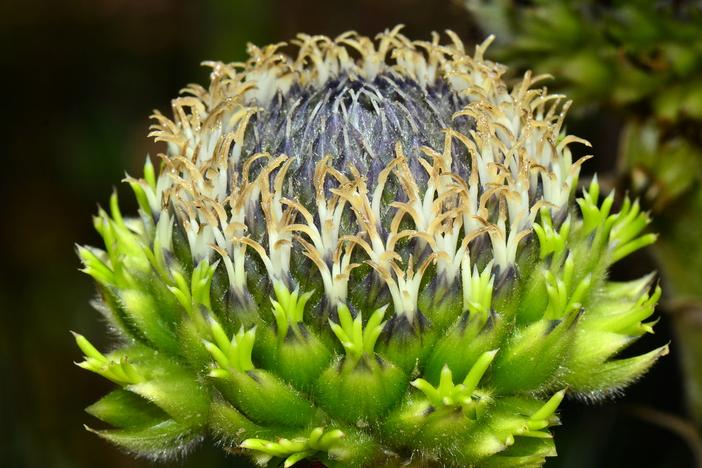Black Gin
(Kingia australis)
Black Gin (Kingia australis)
/
/

Jean and Fred Hort
CC BY 2.0
Image By:
Jean and Fred Hort
Recorded By:
Copyright:
CC BY 2.0
Copyright Notice:
Photo by: Jean and Fred Hort | License Type: CC BY 2.0 | License URL: https://creativecommons.org/licenses/by/2.0/ | Uploader: jeans_Photos | Publisher: Flickr








































Estimated Native Range
Summary
Kingia australis, commonly known as Black Gin, is an evergreen tree endemic to the open woodlands and seasonally wet areas of Southwestern Australia. It is characterized by a thick pseudo-trunk formed by accumulated leaf bases, topped with a cluster of long, slender, grass-like leaves. The trunk, typically unbranched unless damaged, supports the plant’s unique reproductive structure. Flowers are borne in dense, spherical heads at the ends of up to 100 long, curved stems, creating a distinctive appearance. Kingia australis exhibits an extremely slow growth rate, with the trunk height increasing by approximately 1½ centimeters annually. Despite this slow growth, it can live for centuries, allowing mature specimens to reach heights of six meters or more. The plant’s longevity contributes to its substantial height over time, with 400-year-old plants reaching notable heights not being unusual.
Kingia australis is valued for its unique form and the textural contrast it provides in landscapes. It is suitable for cultivation in parks and gardens, particularly in regions with a Mediterranean climate. It thrives in full sun to part shade and requires low to medium amounts of water, making it relatively drought-tolerant once established. The plant prefers soils with medium to fast drainage. While it is slow-growing, its longevity and distinctive appearance make it a conversation piece in any garden setting. Kingia australis is not commonly affected by diseases, but it can be sensitive to overly wet conditions, which may lead to root rot.CC BY-SA 4.0
Kingia australis is valued for its unique form and the textural contrast it provides in landscapes. It is suitable for cultivation in parks and gardens, particularly in regions with a Mediterranean climate. It thrives in full sun to part shade and requires low to medium amounts of water, making it relatively drought-tolerant once established. The plant prefers soils with medium to fast drainage. While it is slow-growing, its longevity and distinctive appearance make it a conversation piece in any garden setting. Kingia australis is not commonly affected by diseases, but it can be sensitive to overly wet conditions, which may lead to root rot.CC BY-SA 4.0
Plant Description
- Plant Type: Tree, Grass
- Height: 10-20 feet
- Width: 20-30 feet
- Growth Rate: Moderate
- Flower Color: N/A
- Flowering Season: Winter, Spring
- Leaf Retention: Evergreen
Growth Requirements
- Sun: Full Sun, Part Shade
- Water: Medium
- Drainage: Medium, Fast
Common Uses
Low Maintenance, Potted Plant, Rock Garden
Natural Habitat
Open woodlands and seasonally wet areas
Other Names
Common Names: Bullanock, Grass
Scientific Names: , Kingia australis, Kingia australis var. argentea, Kingia argentea,
GBIF Accepted Name: Kingia australis R.Br.